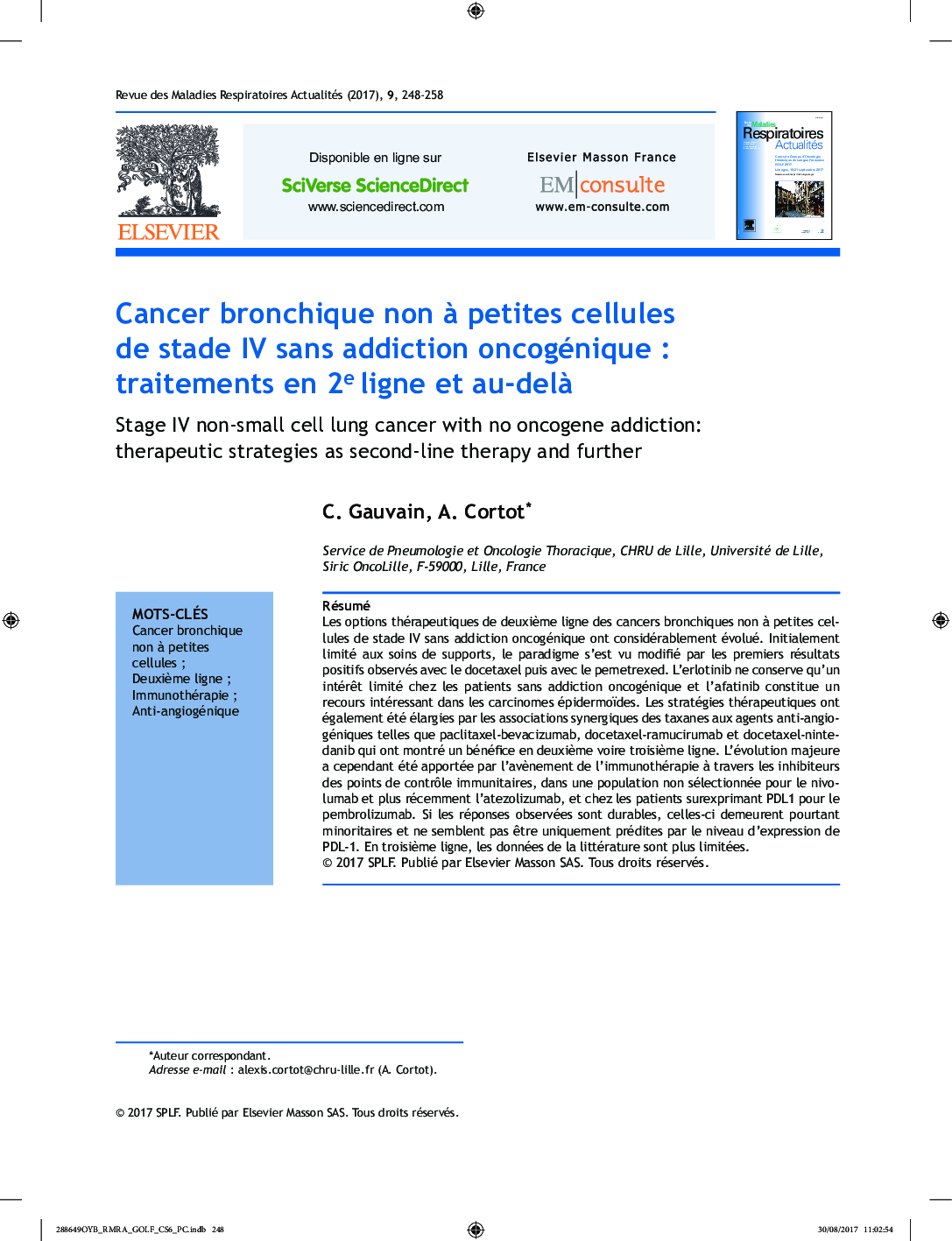| Article ID | Journal | Published Year | Pages | File Type |
|---|---|---|---|---|
| 8820650 | Revue des Maladies Respiratoires Actualités | 2017 | 11 Pages |
Abstract
Second line therapeutic options in non-mutated stage IV non-small cell lung cancer have considerably evolved in the last fifteen years. The paradigm which was initially limited to best supportive care has first been changed by the benefit provided by chemotherapy regimens such as docetaxel and pemetrexed. After several studies, erlotinib does not constitute anymore a solid option in non-mutated patients. However afatinib has shown benefit in squamous cell carcinoma. Therapeutic strategies have also been enlarged by the synergic combinations of taxanes and anti-angiogenic drugs such as paclitaxel-bevacizumab, docetaxel-ramucirumab or docetaxel-nintedanib. Nonetheless, the most important breakthrough was brought by the implementation of immunotherapy through immune checkpoint inhibitors, such as nivolumab and atezolizumab in unselected patients and pembrolizumab in patients harboring overexpression of PDL1. Survival improvement was shown in second and third line settings, though this clinical benefit is retrieved only in a minority of patients and seems not wholly predicted by cancer cells PDL1 expression. In the third line setting, randomized controlled trials remain scarce, and more research is needed in this particular situation.
Keywords
Related Topics
Health Sciences
Medicine and Dentistry
Pulmonary and Respiratory Medicine
Authors
C. Gauvain, A. Cortot,
